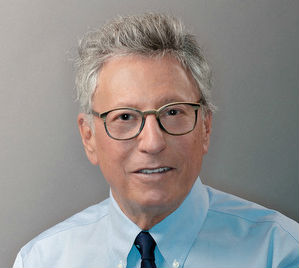
Doug Ford’s election at the start of June as the Premier of Ontario, Canada’s most populous province, has elicited numerous comparisons to Donald Trump — except when it comes to immigration.
Like Trump, Ford inherited a fortune built by his father and yet successfully managed to portray himself as an average guy in it for his fellow average guys.
And like Trump, Ford addressed voters’ economic and social anxieties in stripped down language while railing against the so-called elites, sparking a populist surge that caught many by surprise.
And then there’s the issue of immigration.
As we all know, Trump put immigration front and centre as a key concern that he promised to address if elected.
He portrayed immigrants and immigration as clear and present dangers both to national security and to the job security of American workers.
His supporters – many of them white men without a college degree – welcomed his talk of restoring their privilege in a rapidly globalizing world, the not-so-subtle subtext of his “Make America Great Again” campaign slogan.
Similar meaning could be read into Doug Ford’s “For the People” slogan, but “the people” in question, his supporters, were a much more multicultural mix.
Ford appealed across racial and ethnic lines with a message of tax cuts and a promise to revisit, among other policies, the outgoing Liberal government’s high school sex-ed curriculum, which was deeply unpopular with more conservative voters, including many new Canadians.
Despite this backing, comparisons to Trump gained renewed vigour during the election campaign when Ford asserted during a leaders’ debate that Ontario should “look after our own first” rather than encouraging greater immigration to its population-challenged northern regions.
Ford tried to dispel the ensuing controversy by pointing to his immigrant supporters as proof that he wasn’t Canada’s Donald Trump.
“There’s no politician that probably has more support out there for new Canadians,” Ford said. “Ford Nation’s full of new Canadians,” he added, referring to the term given to his core supporters.
Ford then pledged to create more spaces for apprenticeships and “do everything in our power” to ensure professional credentials held by new immigrants are recognized.
One of the more thorough analyses of Ford’s relationship with new Canadians was published by Vice News as the Ontario election entered its final weeks.
Journalist Tamara Khandaker wrote that whatever Ford feels personally, the strength of immigrant communities in Ontario, and especially in key ridings on the outskirts of Toronto, has made appealing to their various concerns a political necessity.
Likewise, immigrant supporters of Ford interviewed dismissed his history of controversial remarks on race, chalking them up to what Khandaker said was “a refusal to be politically incorrect and accept the idea of urban Liberals.” As long as he does what he says he’s going to do on taxes, public transit and other issues, his immigrant supporters said they weren’t concerned. “Doug Ford is a businessman, and that’s what Ontario needs right now,” one told Khandaker.
Writing in Washington Post in the wake of Ford’s win on June 7, University of Toronto professor Peter Loewen said the result “did not signal a wholesale transplant of Trumpian populism to Canada.”
While certainly populist in his disdain for elites and the liberal mainstream media, Loewen wrote that the kind of populism represented by Ford “is not, at its core, anti-immigrant.”
“This is a form of populism in a country in which 1 in 5 citizens are born abroad, and especially with a city, Toronto, where the number is nearly half,” he said.
It’s a kind of populism that made Doug Ford laugh at a proposal from some supporters that he adopt “Make Ontario Great Again” as his campaign slogan, but ultimately dispel it.
“I’m worried with Ontario. I’m not worried about what’s going down in the states,” he replied.
Let’s hope his concerns continue to be for immigrants, and not about them.